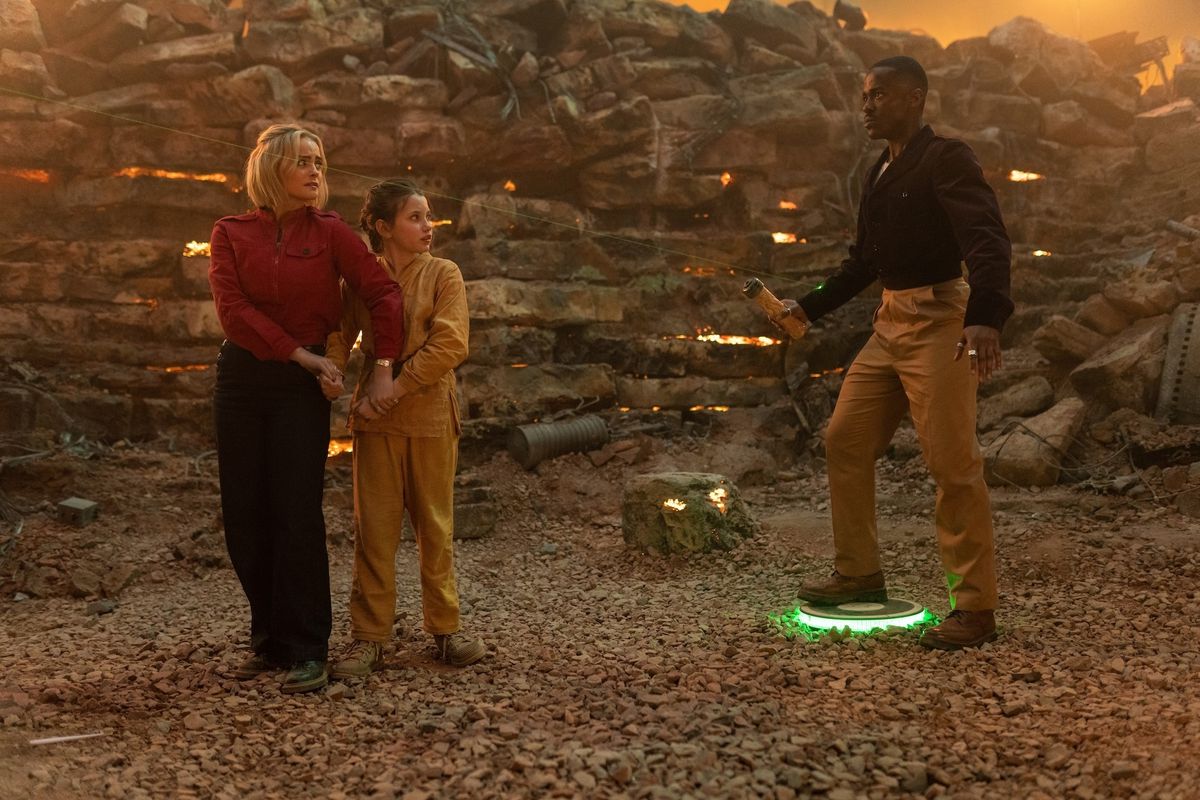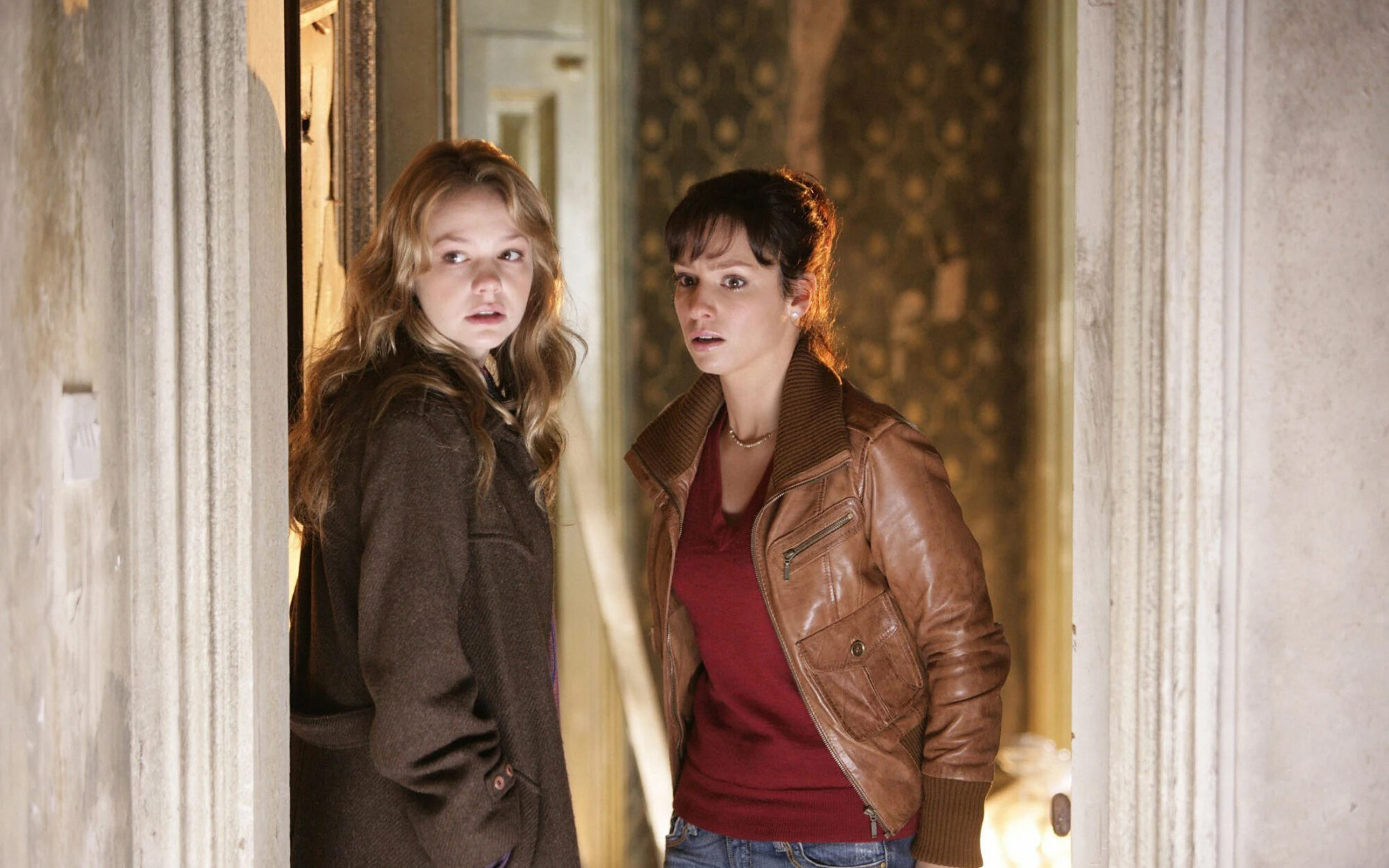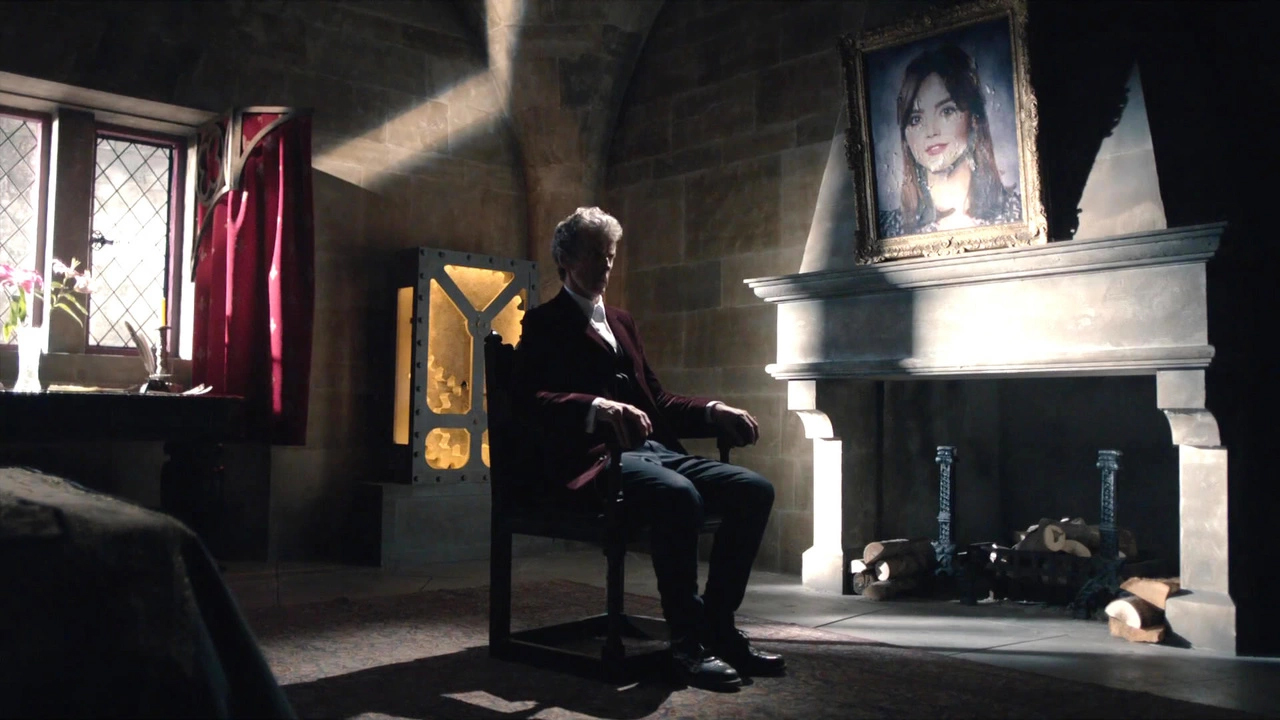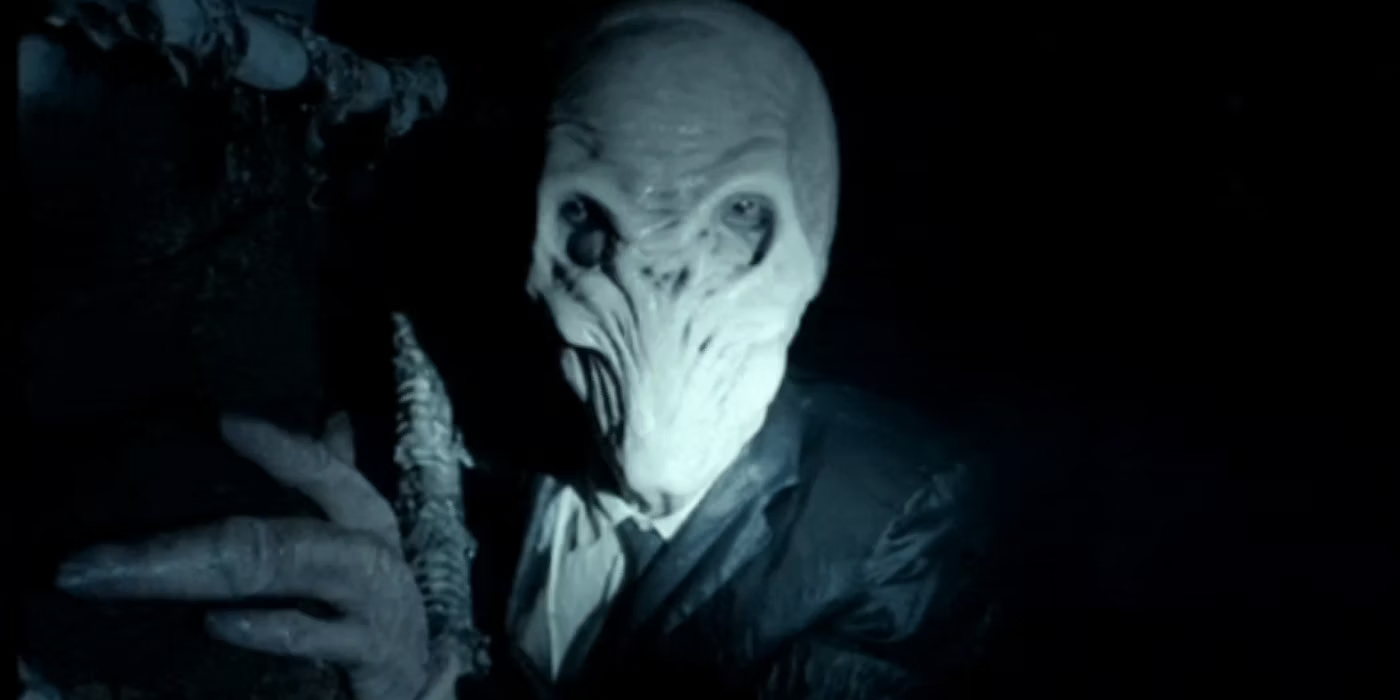Steven Moffat may have written some of the most complicated Doctor Who stories of all time, but he is also a master at taking simple ideas and weaving them into something powerful.
Doctor Who Series 1 / 14 / Fnarg saw Steven Moffat return to the series after a seven year absence with the simply-titled ‘Boom’ – the fourth episode to star Ncuti Gatwa as the eponymous Time Lord. Little was known about this episode before it aired, except that it was written by one of modern Who‘s most experienced writers (Steven Moffat has penned more episodes of the modern series than any other writer.) And his stories are far from conventional, so fans knew that – if nothing else – ‘Boom’ would certainly be interesting.
The premise of the episode is a simple one, and it is inspired by the classic Doctor Who story ‘Genesis of the Daleks.’ In the first episode of that adventure, the Doctor inadvertently steps on a landmine, and daren’t move a muscle. It’s up to his companion Harry Sullivan to wedge a few rocks under the explosive to steady it so that the Time Lord can lift his foot.
And this is the idea that Steven Moffat pitched to Russell T Davies, the current showrunner: what if the Doctor spent the entire episode with his foot on a landmine, unable to move?

And that’s, really, what ‘Boom’ is about; the Doctor spends the majority of the episode rooted to the spot. He’s reticent to even raise a hand or move his head, as the mine is still trying to decide if a living creature has stepped on it or not. It’s a clever and powerful episode and, despite the characteristic Steven Moffat plot twists, ‘Boom’ is mainly a character-driven piece, largely contained to a single set: a crater in the middle of a battlefield. And like all simple (but effective) Doctor Who stories, this one is more akin to a piece of theatre than a television drama, and that’s no bad thing.
And for all of Steven Moffat’s head-scratching ‘timey-wimey’ plots, many of his stories are rooted in very simple ideas. For example, in 2007 he was tasked with penning the dreaded ‘Doctor-lite‘ episode of Series Three – that is, an episode in which the Doctor would hardly appear. It also had to be relatively cheap.

The solution? Steven Moffat conceived of a monster which only moved when a person wasn’t looking. If they blinked, they were dead. That was the idea. The episode was called ‘Blink’ and went on to become one of the most successful Doctor Who stories of the modern era, bagging Steven Moffat two BAFTAs. The story also gave birth to the Weeping Angels (the monsters which moved when they weren’t observed) and they have since become as popular and recognisable as the Cybermen or even the Daleks.
It is clear, therefore, that Steven Moffat thrives on limitations, be them self-imposed or otherwise. Arguably, the most ‘limited’ episode of all time would have to be Series Nine’s ‘Heaven Sent,’ which is set almost entirely within a single location, and is solely driven by the Doctor. There is no supporting cast; yes, there is the Veil that stalks him throughout the story (although it never speaks) and there is a brief moment where he has a vision of Clara, but otherwise he is on his own. For a whole 50 minutes.

In ‘Heaven Sent,’ the Doctor finds himself trapped in a mysterious ‘castle’ with shifting doors and passages. There is a veiled creature slowly stalking him, baying for his blood, and it can only be stopped if the Doctor utters a previously unconfessed truth. The rest of the time, he has to keep moving and keep his distance from the Veil, desperately trying to unravel the mystery of the castle and its lake of skulls.
Of course, one could argue that any scriptwriter could pen a 50 minute drama for a single actor to perform, but it wouldn’t necessarily be a good drama. Writing something clever, enigmatic and compelling takes skill, particularly when the adventure has to sustain an audience’s attention for nearly an hour. And even then, the actor has to be skilled enough to maintain the momentum; ‘Heaven Sent’ benefits hugely from the fact that it’s carried by a performer as talented as Peter Capaldi.
Another classic story from this time period is ‘Listen.’ It’s more complex than ‘Heaven Sent,’ but it still has a relatively small cast compared to some of the more epic Doctor Who adventures. And again, it’s rooted in a very simple idea: what if there was a creature which had perfected the art of hiding? And if it existed, how would a person even know about it? And what would that creature do when it was hiding?
Answer? It would listen. But it’s hard to say much more about this particular Steven Moffat episode without giving too much away, or indeed revealing the twist ending, so it’s definitely worth watching if you’ve never seen it. The episode is set almost entirely at night (albeit in a variety of time zones and locations) so it’s atmospheric and chilling. There are some real ‘Midnight’ vibes with this one, with a particularly chilling scene where the unseen creature bangs on the door of a crashed spaceship. And, if you know your classic Who, you will also spot a clever reference to the very first Doctor Who story, ‘An Unearthly Child.’

So can we expect more from Steven Moffat in the future? Let’s hope so. After all, there are still a few human senses left for him to cover; we’ve had ‘Blink’ and ‘Listen’ and ‘Deep Breath,’ and ‘The Curse of Fatal Death‘ dealt with the power of smell, so we now need a story about talking. Perhaps he could call it ‘Silence.’ We haven’t had any stories about silence yet. Right?

As I said, we haven’t had any stories about silence yet.
Which is your favourite ‘simple’ Steven Moffat episode? Let us know in the comments below.









Leave a Reply